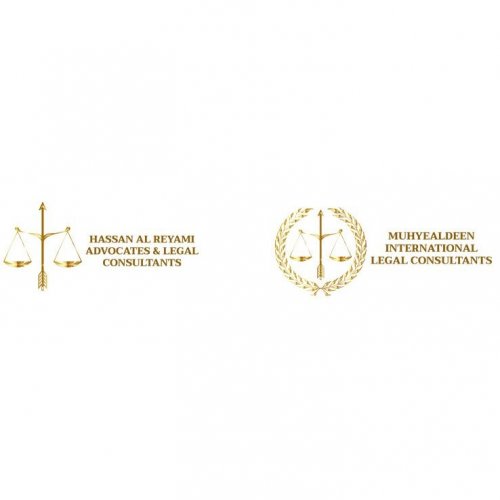Best Commercial Real Estate Lawyers in Abu Dhabi
Share your needs with us, get contacted by law firms.
Free. Takes 2 min.
Free Guide to Hiring a Real Estate Lawyer
List of the best lawyers in Abu Dhabi, United Arab Emirates
About Commercial Real Estate Law in Abu Dhabi, United Arab Emirates
Commercial Real Estate Law in Abu Dhabi directly underlines all dealings with property transactions, lease, rental, sale, purchase or development of commercial property. It is encompassed within the civil law jurisdiction of the United Arab Emirates (UAE), specifically outlined in the Property Ownership Law of Abu Dhabi (Law No. 19 of 2005) and its amendments. This law oversees ownership rights of both locals and foreigners, submission of disputes, and the processes involved in commercial real estate transactions.
Why You May Need a Lawyer
Lawyers provide essential guidance and support in navigating the complexities of commercial real estate transactions. You may need a lawyer for several situations such as drafting contracts during a sale or a lease, in the negotiation process, handling disputes arising from transactions, ensuring compliance with zoning and property use regulations, and for providing advice over matters of property development and financing.
Local Laws Overview
The primary law governing commercial real estate in Abu Dhabi is Law No. 19 of 2005, which later saw amendments through the Law No. 2 of 2007 permitting foreigners to own properties in investment zones. In accordance with the regulations, foreigners can acquire usufruct rights, musataha rights, and long-term lease rights for up to 99 years. Another relevant law is the Strata Law (Law No. 3 of 2015), which deals with ownership of common property in multi-storey buildings and complexes.
Frequently Asked Questions
Can foreigners own property in Abu Dhabi?
Yes, recent amendments to the property laws in Abu Dhabi permit foreigners to own freehold properties in designated investment zones.
What are usufruct and musataha rights?
Usufruct and musataha rights allow a person to enjoy the benefits and use of a property that is owned by someone else. Usufruct rights last for a maximum period of 99 years while musataha rights can be granted for up to 50 years, renewable for the same period.
Can a lease agreement be terminated before its contract ends?
Both the tenant and the landlord can terminate the agreement before the contract ends, given that they follow the agreed process in the contract, which typically includes a notice period and penalty fees.
What is strata law?
The Strata Law (Law No. 3 of 2015) is specific to apartment ownership rights; it provides for the separation of ownership between different floor levels in multi-storey buildings and complexes.
What are zones in Abu Dhabi for property development?
Zoning means the division of specific areas or "zones" within a particular region or city. These zones determine the regulations or controls regarding property use and development within those particular boundaries.
Additional Resources
Information related to property laws can be obtained from Abu Dhabi Municipality, Department of Urban Planning and Municipalities, and the Abu Dhabi Global Market (ADGM). For property disputes, one can seek help from the Abu Dhabi Rental Dispute Settlement Centre or the ADGM Courts.
Next Steps
If you require legal assistance in commercial real estate in Abu Dhabi, it’s advisable to seek consultation with a legal firm that specializes in UAE property law. Following an initial review of your situation, they will provide advice, perhaps drawing on the expertise of specialists in each area of commercial real estate, to determine the best course of action for your specific needs.
Lawzana helps you find the best lawyers and law firms in Abu Dhabi through a curated and pre-screened list of qualified legal professionals. Our platform offers rankings and detailed profiles of attorneys and law firms, allowing you to compare based on practice areas, including Commercial Real Estate, experience, and client feedback.
Each profile includes a description of the firm's areas of practice, client reviews, team members and partners, year of establishment, spoken languages, office locations, contact information, social media presence, and any published articles or resources. Most firms on our platform speak English and are experienced in both local and international legal matters.
Get a quote from top-rated law firms in Abu Dhabi, United Arab Emirates — quickly, securely, and without unnecessary hassle.
Disclaimer:
The information provided on this page is for general informational purposes only and does not constitute legal advice. While we strive to ensure the accuracy and relevance of the content, legal information may change over time, and interpretations of the law can vary. You should always consult with a qualified legal professional for advice specific to your situation.
We disclaim all liability for actions taken or not taken based on the content of this page. If you believe any information is incorrect or outdated, please contact us, and we will review and update it where appropriate.

















